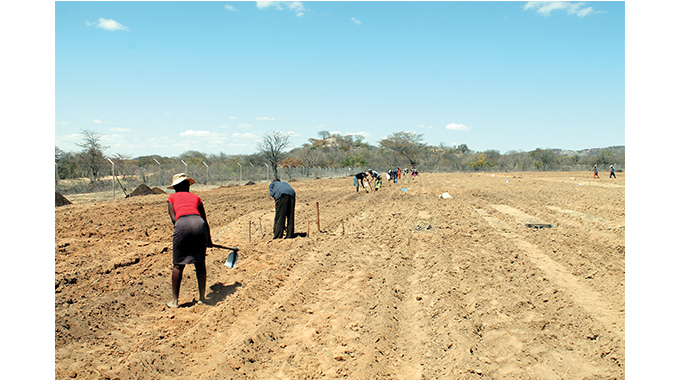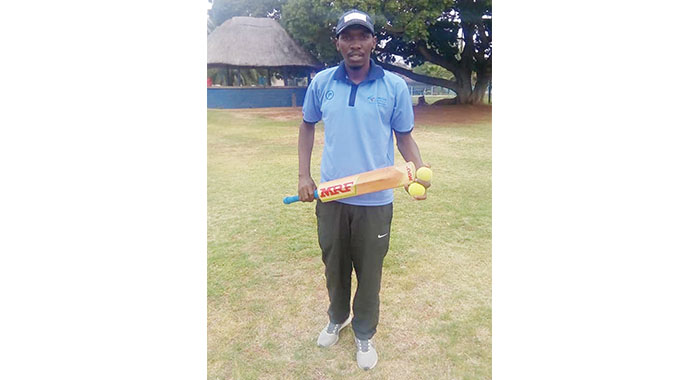Empowering women to transform Africa’s food systems

Andile Tshuma
The Covid-19 pandemic has shown the need to accelerate women’s socio economic empowerment.
It has shown the need for bolder action to achieve gender equality and to empower women and girls in the agricultural sector and beyond.
Women, both in rural and urban set ups are instrumental in the fight against hunger and malnutrition, especially during this time when incomes have been lost owing to the pandemic. They are also instrumental in making food systems more productive and sustainable.
Women contribute a lot in communities as they grow food, reduce food losses, make diets more diverse and agricultural produce more marketable along the agri-food value chains.
Securing sustainable global systems is attainable if women everywhere are empowered and their rights are recognised and respected.
Increasing gender equality is directly linked to the delivery of economic growth as it can help to cut down extreme poverty and reduce hunger.
Sustainable Development Goals on reducing poverty and eliminating hunger will not be achieved if the gender dynamics are not addressed.
I come from Gwanda. Mtshabezi to be precise. The women in my area are very resourceful all year round. They just lack proper markets.
During the cropping season with good rains they grow enough to eat and a bit more to sell. When there are wild fruits in season and there is surplus, some are dried up and kept for the dry months. They preserve relish for the dry months, they make imifushwa which many love to buy.
They have nutrition gardens near their wells or near bush pumps, these they have all year round.
They grow vegetables for consumption and a bit more for sale. You will find them selling at places such as Stanmore, KoMtshazo, eMawabeni, eNyandeni. Some go even as far as Mbalabala to sell their produce.
They also harvest amacimbi for relish and for business. They have their little cooperatives.
This is what I have seen the women in my home area do. Imagine people that are so industrious and resourceful, if they could get a little more teaching in business and be empowered to grow crops on a larger scale and be able to venture into business. They are already feeding their families and also getting some income. But sometimes they lack proper markets and, mostly rely on motorists and buses to sell to travellers, who often want to rip then off and buy at prices lower than fair rates.
They lack access to productive resources, yet they have so much potential.
In my other home in Tshabalala suburb, the women are equally industrious. They grow so many vegetables at home and at community gardens near bush pumps too, although this has been affected by the extreme water shortage in Bulawayo. They grow for consumption and sell the surplus. However some are tenants and do not have their own space to grow food and end up growing illegally in undesignated farming spaces.
But they are proof of the vast opportunities in urban farming as a way to feed the cities.
If such women got more support in their agricultural endeavours, if they were linked to proper markets communities would have more food, their nutritional status would improve, incomes would increase, and food systems would become more efficient and sustainable.
Due to climate change and its related effects, rural women in particular are getting more vulnerable to food insecurity and economic and environmental shocks which are affecting their livelihoods.
The agricultural sector could be underperforming because women do not have the same access as men to inputs, resources, services and opportunities yet women constitute an estimated 60 percent of employment in agriculture in emerging economies such as Zimbabwe. Yet, women represent less than 15 percent of all land owners in the agriculture sector, according to the Food and Agriculture Organisation.
Women need to be at the forefront of the agricultural industrialisation at the decision making table and throughout the value chain, including in the development of better farming technologies, said Dr Graca Machel during a Presidential summit at the recently ended African Green Revolution Forum conference held in Kigali, Rwanda.
Addressing the challenges of food systems is a key way of helping revive African economies, at a time when the continent is faced by the effects of climate change, malnutrition, poverty, and latest, the unforeseen Covid-19 pandemic.
Zimbabwe must go beyond building resilience, but the hungry in our communities should be empowered and transformed to producers. We have to empower women and support young people, if the agriculture industry is to grow further on the continent.
Women are the hidden powerhouse in agriculture. Yet, women do not have as much access to credit and loans due to collateral issues, amongst other challenges they face in funding.
It is encouraging that Zimbabwe is already addressing the challenges with the Women’s Bank which has opened a lot of doors for women to access funding and pursue their passion in business.
According to the Rockefeller Foundation, Africa has the highest number of women entrepreneurs in the world, therefore more financial institutions in the country should take a leaf from the Women’s Bank and help fund women so as to transform Zimbabwe’s economic narrative.
However, while these financing products are being made available, more work must be done in informing women about these products and what needs to be done for them to be accessible.
One of the fundamental resources that is essential for the development and sustenance of people in Africa is land. Land is very important because it forms the basis of agricultural production in the sub-region.
However, it has been difficult for women to access land in the country and the continent in general due to multiple issues most of which are embedded in patriarchy as a system which breeds gender inequality.
The glaring manifestations of these unequal relations are the failure of women to access basics such as land, education, and participation in politics.
Male dominance is not only a sexual and social problem but also a political and economic one aimed at maintaining existing unequal power relations which subordinate women.
Zimbabwe has however made notable strides in addressing gender politics in land ownership in the country, with the Ministry of Lands, Agriculture, Water and Rural Settlement launching a national gender sensitive policy in 2019, in partnership with the Food and Agriculture Organisation in an effort to improve the land governance system.
Girls and young women represent a crucial invisible labour force in emerging economies such as Zimbabwe. They play a key role as producers of food, managers of natural resources, income earners and primary caregivers for their families and communities.
However, gender-based discrimination denies them opportunities in agriculture and food production, education as well as the power of decision making.
Women have vast potential to transform our food systems that are already contributing so much with little support. Imagine what they could do if they get the necessary support and empowerment they needed.
They could feed their families, their communities, their nations and the world. — @andile_tshuma











Comments